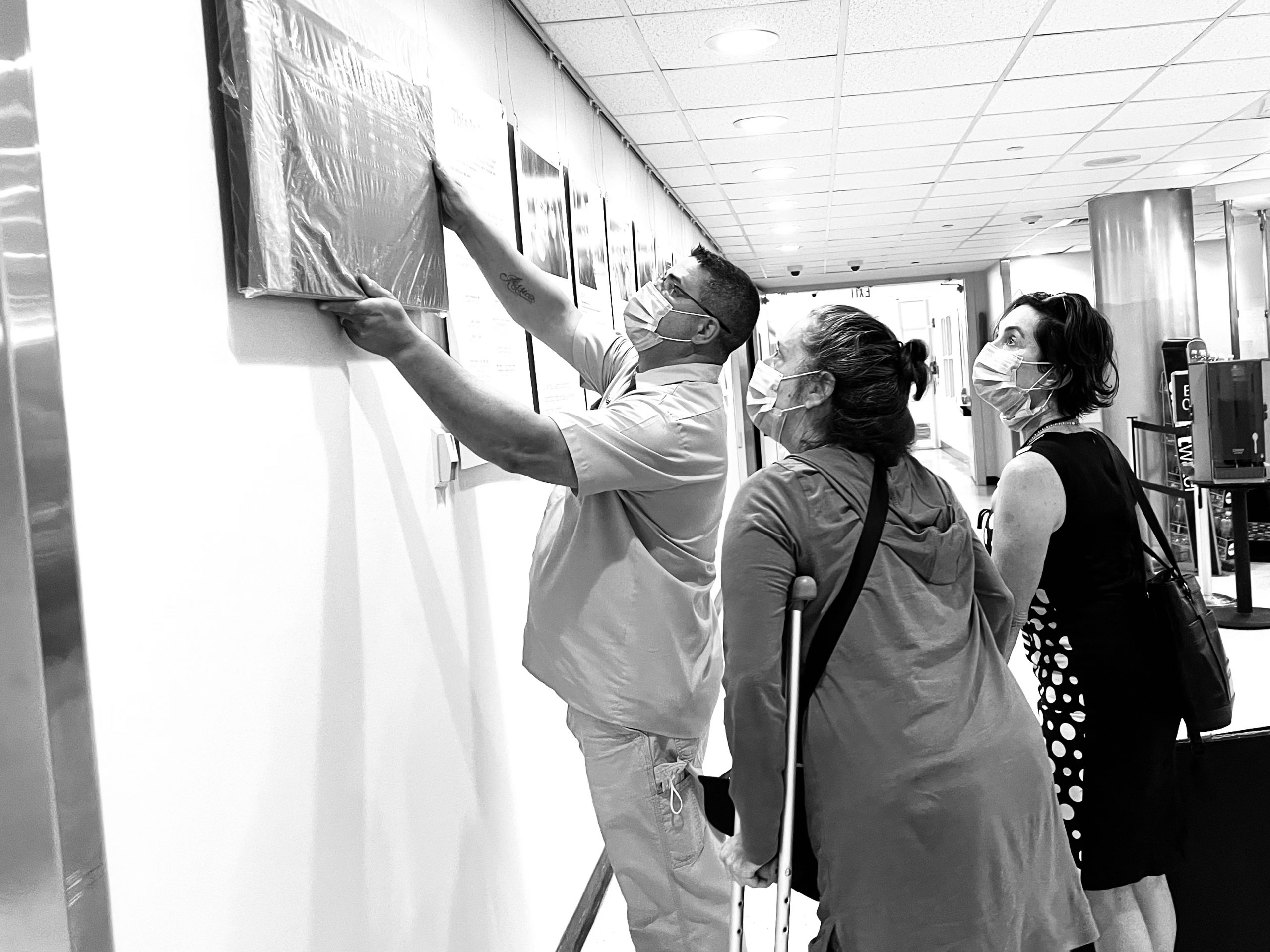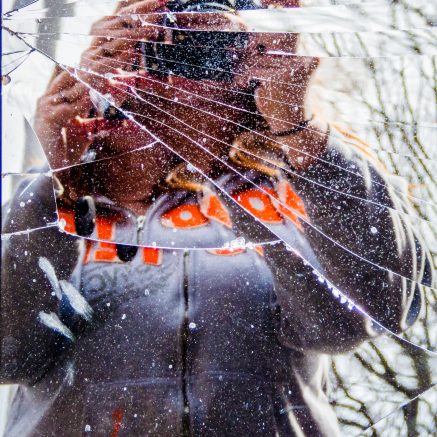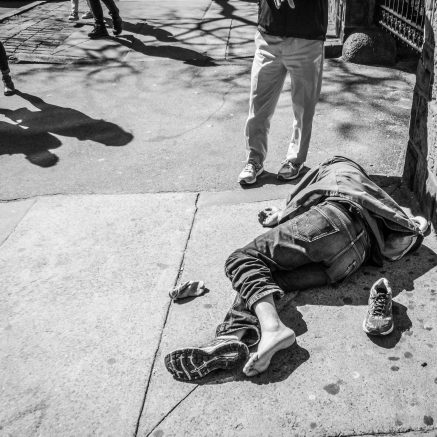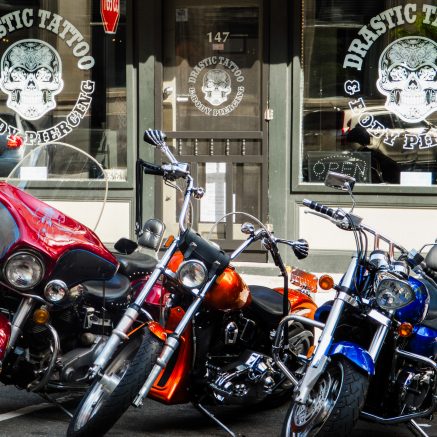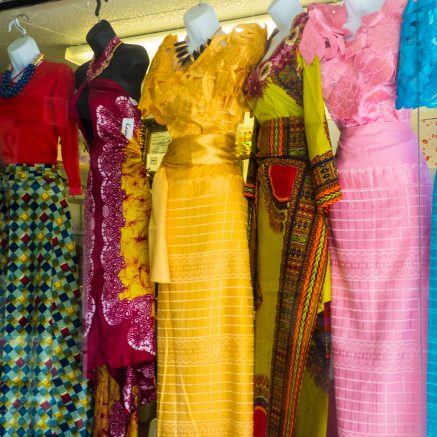"Family and friends are a lifeline when you are homeless."
Here we see Joanne, the sole named participant of the Off The Grid Project (right) and whose story can be found here and here, in a candid moment with a resident of the Lynn Emergency Homeless Shelter whom she had not seen for some time. As many individuals are treated similarly by organizations, regardless of gender, age, disability, etc, individuals experiencing homelessness rely heavily on one another, quickly forging deep and long-lasting connections.
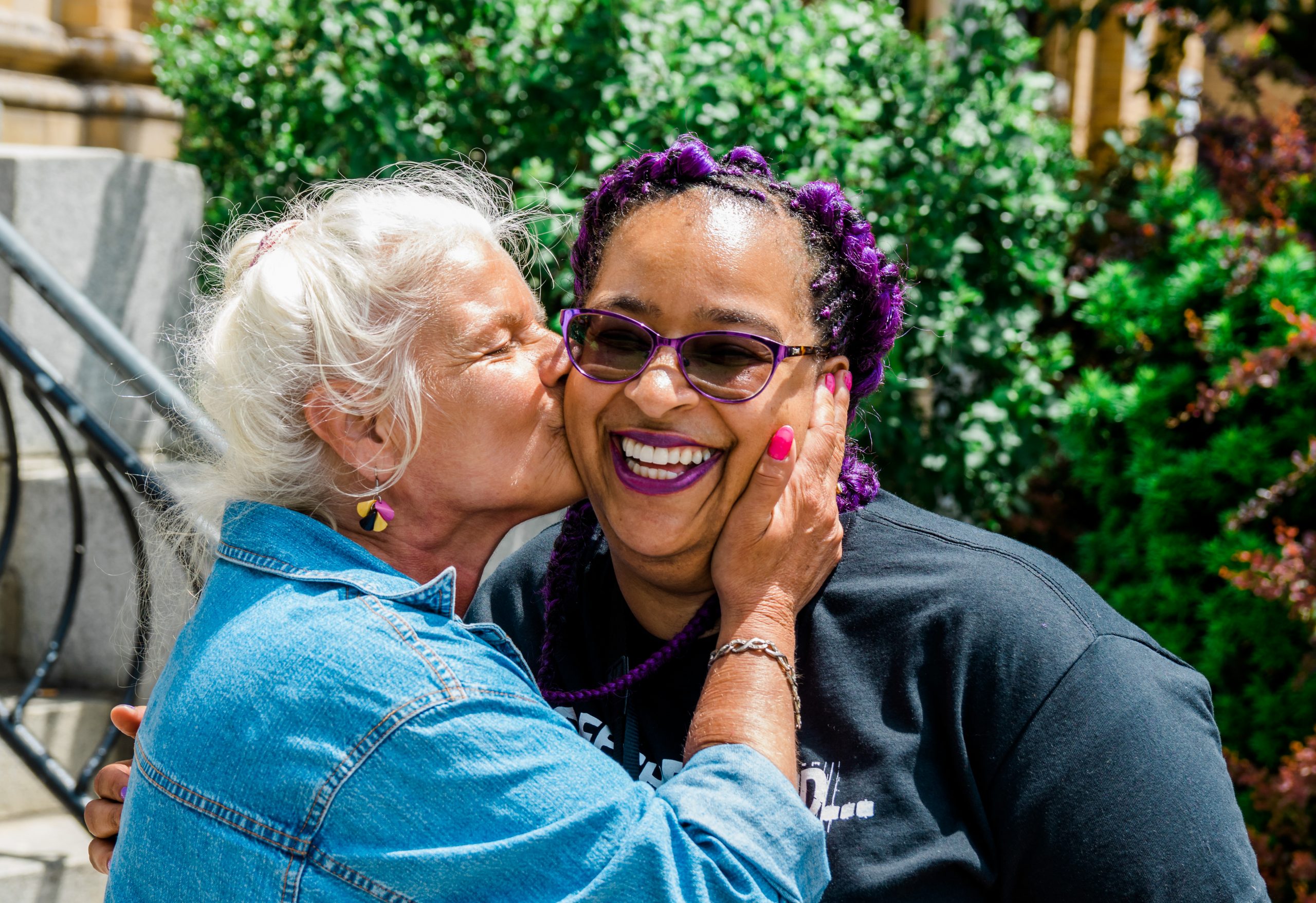
OFF THE GRID Collection, 2016. Digital Photograph. ©OFF THE GRID. All rights reserved.
Every homeless shelter has different ways they assign—and the duration for which they assign—beds. The Lynn Emergency Shelter at the time had a dormitory system and would assign new beds using a lottery system where people would pick cards with numbers which correspond to their order for picking a bed (or choosing to for go a bed). Once bed’s were assigned, they were assigned to that person for 21 days, or until they chose to leave. Contrast this system with Pine Street In where bed lotteries are were only for one night.
One exception to the daily bed lottery at Pine Street are those enrolled in the work program. Participants in the work program either help clean and turn over the shelter daily or are part of the iCater program. The iCater program, founded in 1990, provides food service training and employment opportunities individuals experiencing homelessness, while providing high-quality, affordable meal service for corporate catering and congregate service providers. Trainees help prepare more than 2,700 meals each day for shelter guests and other customers. You can learn more about iCater, and how they can provide your company or organizations with meals, here.
